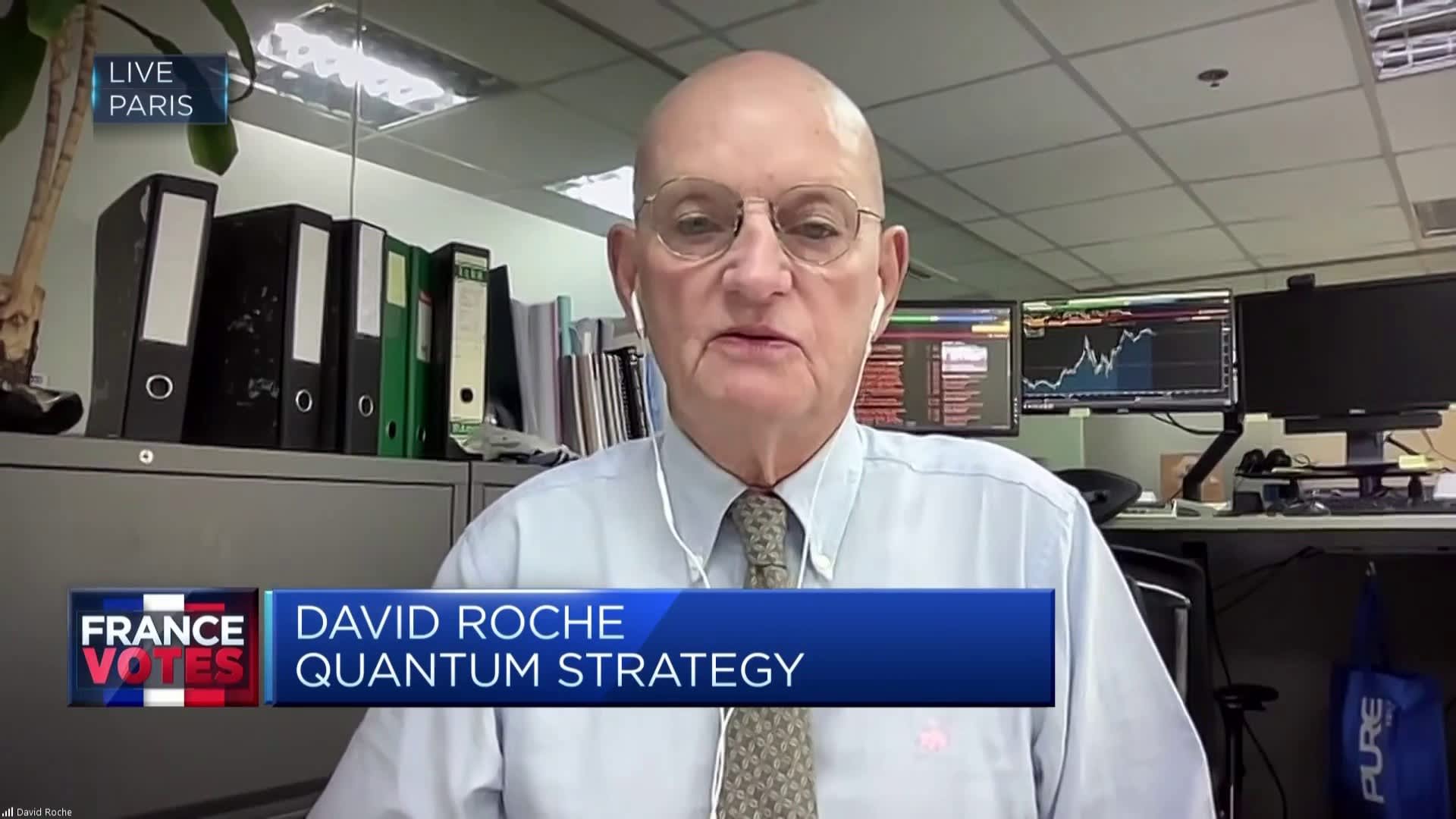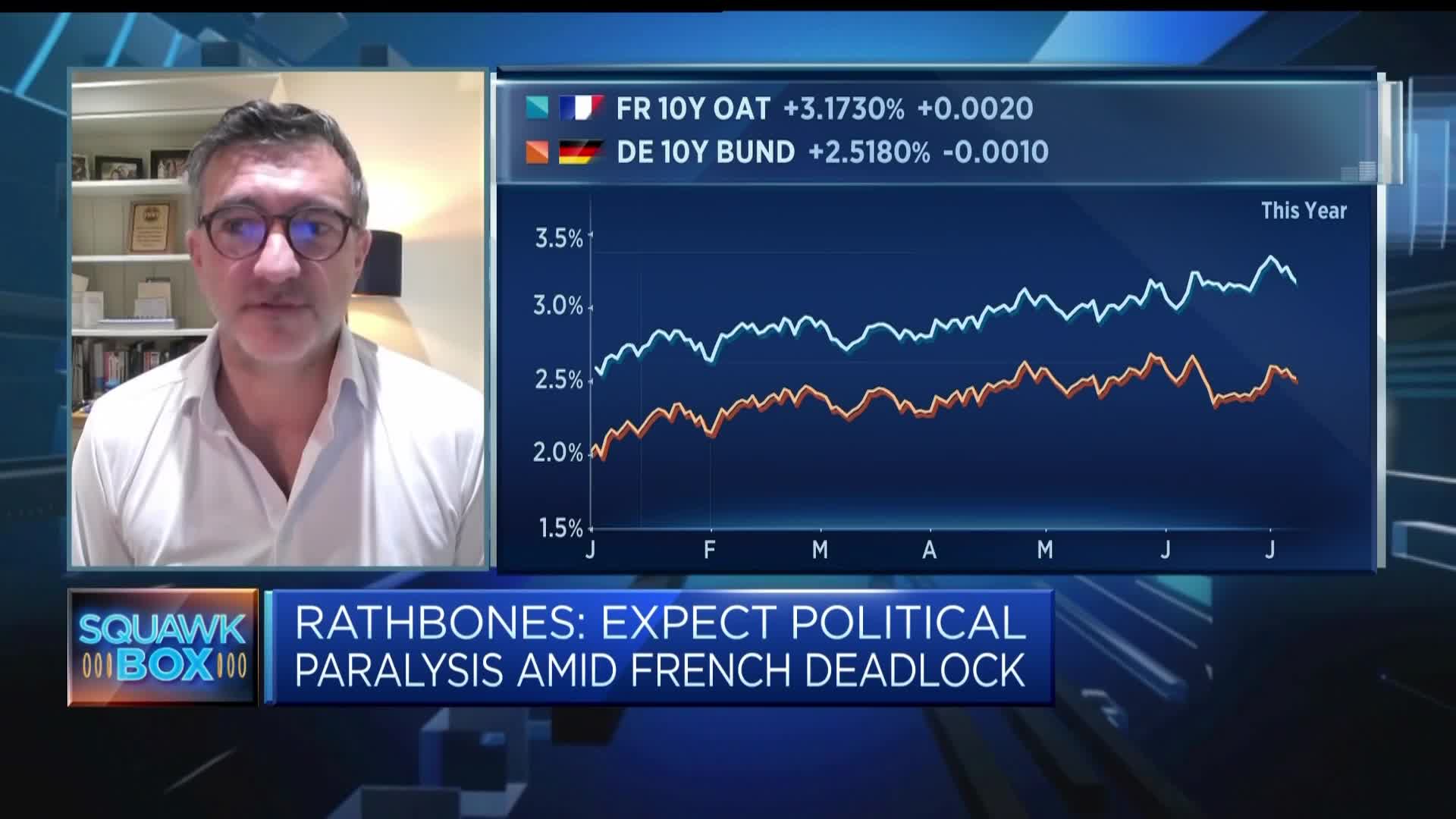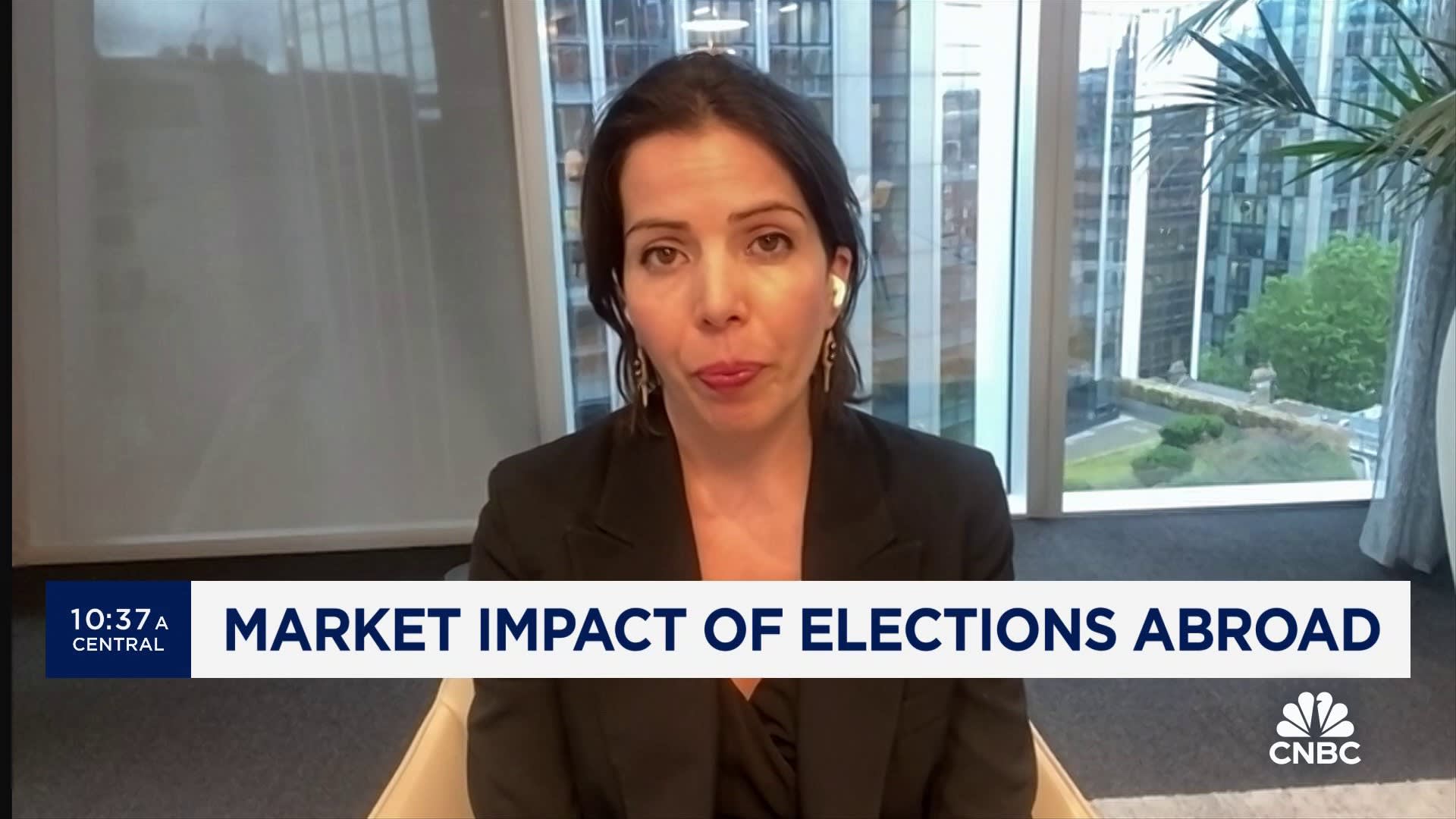
French borrowing costs still face a “blowout” over those of Germany, as political and economic reality sets in following the country’s parliamentary election, according to veteran investor David Roche.
However, former European Central Bank chief Jean-Claude Trichet told CNBC he believes that, despite current uncertainty, a “coalition of ideas” will form to break any deadlock.
The French bond market has remained relatively calm in the wake of the Sunday run-off vote, which handed a surprise victory to the left-wing New Popular Front alliance. No single party or coalition won an absolute majority, leaving France to contend with a hung parliament.
The spread between French and German 10-year bond yields was around 70 basis points on Wednesday, down from the 12-year high of 85 basis points it hit on June 28 — and up from 49 basis points before President Emmanuel Macron shocked the nation by calling the snap election. French debt historically carries a premium over that of Germany, but the gap has reached levels not seen since the European debt crisis in the early 2010s.
Bond yields move inversely to prices and represent the change in borrowing costs for a government — also indicating long-term investor confidence in the economy.
Loading chart…
Quantum Strategy President David Roche said market watchers may have expected a “blowout” to a 120-basis-point spread between French and German sovereign debt, given that the new French government is highly unlikely to cut the country’s fiscal deficit to comply with European Union regulations.
“But actually, nothing has happened. Now, my view is that it will happen,” Roche told CNBC’s “Squawk Box Europe” on Tuesday.
“It will happen when it comes home that actually political paralysis in France is economic paralysis in France, economic paralysis in France means that France is going to be on a trajectory which is in direct contradiction to its undertaking in Europe,” he said.
In a Sunday note, Roche recommended shorting French government bonds versus German bonds. A short is a bet that an asset price will fall.
The French National Assembly and its various factions, along with President Macron, are now set for a long political tussle which will result in a lack of economic leadership, according to Roche.

Along with economic growth prospects, a key watch-point for investors is France’s hefty budget deficit and high debt-to-GDP ratio of 110%. The European Commission last month warned France and other countries that they were breaching its fiscal rules.
“Eventually that will come home to roost with the euro. And frankly, in a comparison between Italy and France, Italy will look like an angel, though angels they are not, and France will look like the devils,” he continued.
Political deadlock will meanwhile give the far-right Rassemblement National (National Rally) party an opportunity to sit back and criticize, allowing its long-term figurehead Marine Le Pen to position herself for a presidential bid, Roche said.
More broadly, any “populist, self-centered, narcissistic government” in France would mean “Europe will go nowhere,” he added.
“All of the big projects which need funding at the community level will not get the funding at the community level, and I’m talking about enlargement, I’m talking about green projects, I’m talking about rebuilding Ukraine. There are about seven major pillars, they suddenly will go absolutely nowhere, which is disastrous for Europe,” Roche told CNBC.

No room for maneuvering
Former Bank of France Governor Jean-Claude Trichet was more optimistic that the current crop of politicians will find a way to move forward together through coalition talks, implying no deadlock and no risk of a domestic or wider European debt crisis that would require European Central Bank intervention.
The program of the left-wing New Popular Front was “very dangerous” from an economic perspective, but since it failed to win a majority any risks from this are now a “theoretical scenario” that “will not materialize,” Trichet said.
“If it remains a hung parliament for a long period of time, of course, you cannot move freely… my own assessment is that there will be negotiation after a while, when it is demonstrated that none of the present grouping can lead the country,” Trichet told CNBC’s Charlotte Reed, introducing the possibility of a “coalition of ideas.” A best-case scenario would feature decision-making from the governmental right, Les Républicains, the governmental left, the Parti Socialiste and others, the former Bank of France governor added.
“We cannot stay in a country like France without a government or with a government which will do nothing,” he said.

